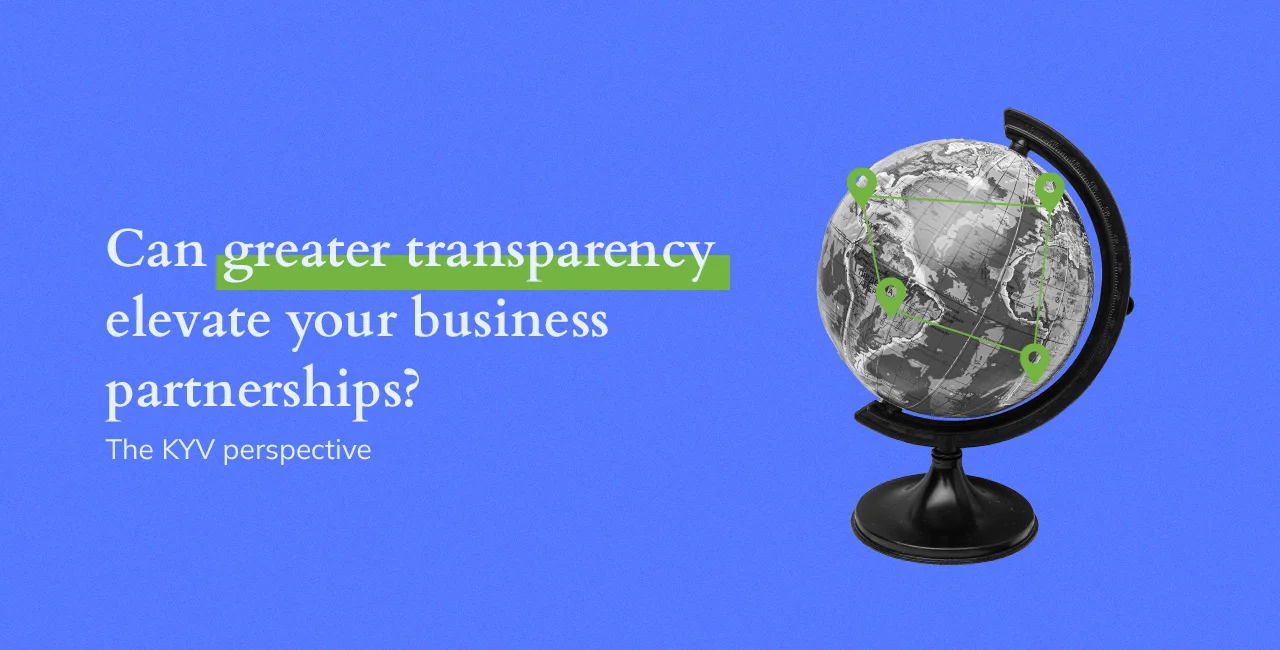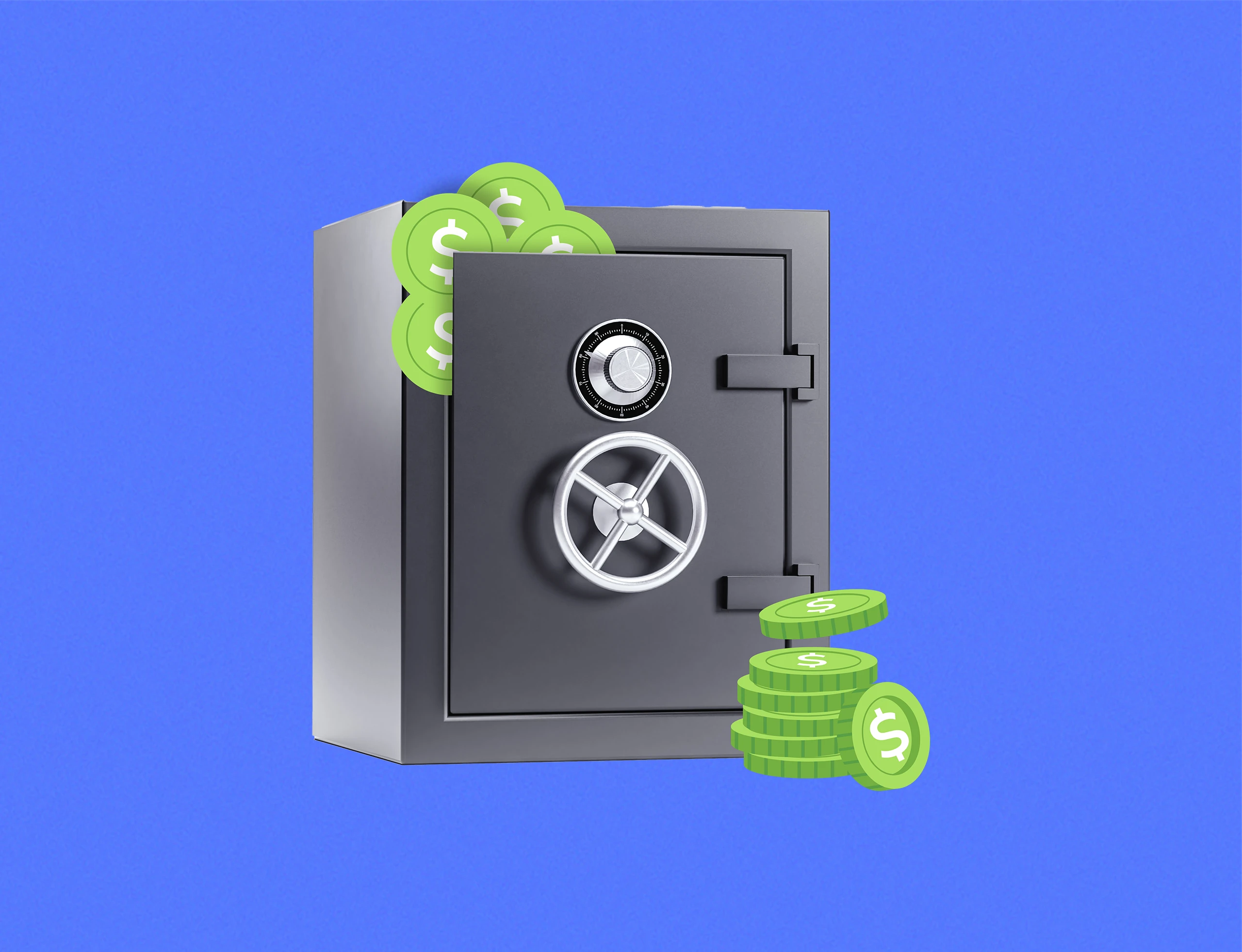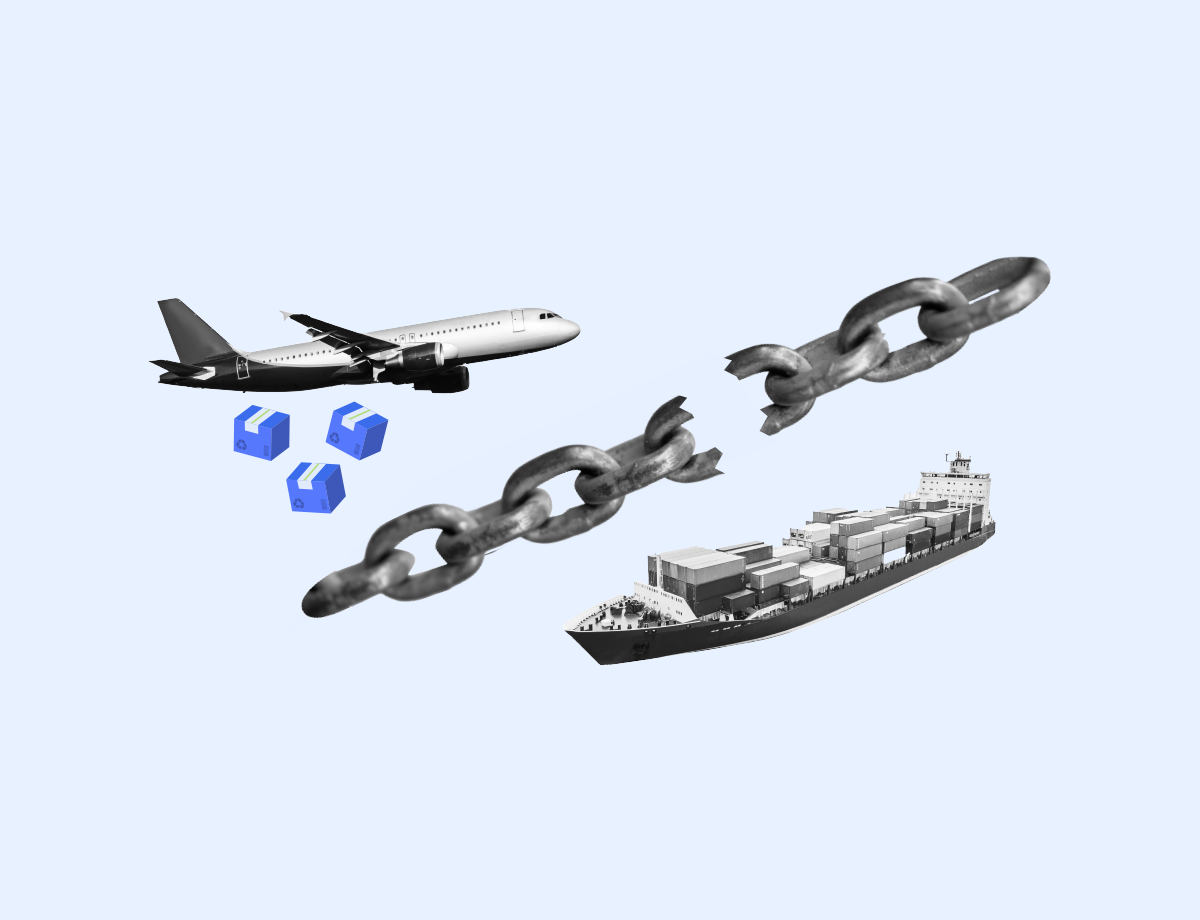A Know-Your-Vendor (KYV) process is an important and frequently ignored source of information for identifying and preventing reputational and financial risks.
Every business needs to manage its vendors and suppliers to minimize risk. Business continuity is crucial for mitigating third-party risks and improving the supply chain.
What Does Know Your Vendor Mean in Supply Chain Risk Management?

Know Your Vendor (KYV) refers to the process of conducting due diligence on third-party vendors or suppliers to verify their identity, assess their reliability, and mitigate potential risks.
This involves gathering and analyzing information about the vendor’s business practices, financial stability, regulatory compliance, and reputational standing. The goal is to ensure that companies work with legitimate, trustworthy partners and protect against risks such as fraud, money laundering, supply chain disruptions, and reputational damage.
Know Who You Are Doing Business With: Due Diligence
KYV verification procedures and guidelines are used to manage commercial supplier relationships effectively. They help ensure that the company you buy from is legitimate and trustworthy by conducting thorough due diligence.
The idea behind a KYV verification is to get to know your partners and determine whether you are willing to do business with them based on the risk assessment.
Supply chain professionals often use the term “Know Your Supplier” (KYS) to describe a “Know Your Vendor” (KYV) program. Regardless of the term, these programs refer to a good management practice in which an organization takes the time to build long-term relationships with its partners.
Supplier Risk Management in the Customer-Supplier Relationship

The risks of not knowing your supplier/vendor are real and can significantly impact your business. Conducting thorough risk assessments is essential. Here are some examples:
Risk Exposure from Minimal Vendor Visibility
Having minimal visibility increases your risk exposure. Ignoring your supplier’s identity and reputation could put you at risk for fraud, delays, and even theft. Identifying and mitigating potential risks is essential to protect your business.
Effective supplier risk management requires knowing your supplier (KYS) to prevent vendor fraud and ensure supply chain stability. For instance, a company that sources raw materials from an unknown supplier without conducting due diligence may face unexpected shipment delays in key components or even product recalls due to substandard materials.
Preventing Reputational Damage and Financial Loss in the Supply Chain
Reputational repercussions may lead to financial loss.
What is the vendor’s reputation? Ask for references in the industry to see if other businesses have heard of them and their opinion. Past customers of your potential partners can have relevant opinions about their services or products.
Negative feedback from previous clients can indicate potential risks. For example, if a supplier has a history of failing to meet deadlines, this can tarnish your company’s reputation and lead to financial instability.
Conducting background checks and gathering comprehensive supplier data can help avoid such issues.
Compliance and Regulatory Risks in Customer Supplier Relationships
Compliance and regulatory/fraud risks are significant concerns.
Can you trust your suppliers with sensitive information? Do they keep confidential information confidential? Will your partners be able to handle problems that arise while doing business with you? Possible liability related to vendor negligence or non-compliance can be detrimental.
Supplier due diligence is critical in preventing money laundering and other financial crimes. For example, partnering with a supplier who engages in illegal actions can result in hefty fines and legal consequences for your company, turning them into high-risk suppliers.
Ensuring your suppliers comply with the regulatory environment is crucial for maintaining business integrity.
Vendor Impact on Business Performance and Supply Chain Stability
The impact of your vendors on your supply chain and business performance can be substantial.
Are they honest and reliable? Do they have a good track record of completing projects on time and within budget? Are they likely to stand behind their work product? Assessing a supplier’s financial stability and operational reliability is crucial.
For instance, a supplier with a history of financial instability may fail to deliver critical components, disrupting your supply chains and affecting your overall operations. Engaging in thorough KYV/KYS processes for risk management can help you make informed decisions and stay ahead in a competitive market.
Ongoing Vendor Due Diligence and Supply Chain Monitoring
Conducting due diligence and ongoing monitoring of your supplier network is essential. The due diligence process should include regular risk assessments, background checks, and monitoring for compliance with industry standards.
New technologies, including artificial intelligence, can aid in streamlining these processes, making them less time-consuming. For example, implementing an automated monitoring solution can provide real-time updates on supplier performance, allowing businesses to identify and address potential risks quickly. Bancoli offers KYV verifications in compliance with U.S. banking level assessments to help mitigate risk and monitor every payment transaction.
Benefits of Knowing Your Vendors
Understanding and managing the global supply chain can help mitigate risks associated with suppliers and vendors, including operational performance, ESG risks, legal compliance, and visibility into the entire supply chain network from primary to tertiary suppliers.

Building Stronger Customer Supplier Relationships Through KYV
Working with the same people over time allows you to learn what they do well, identify areas where they need assistance, and understand how they prefer to work.
Enhanced due diligence is crucial in building stronger relationships by better understanding vendor activities and reducing associated risks. For instance, companies that regularly engage with their vendors can tailor their procurement processes to align with vendor capabilities, fostering a collaborative environment that benefits both parties.
How KYV Increases Trust in the Supply Chain
Understanding your partners’ business models and operations can help you work together more effectively. It can also be an opportunity to build trust for new projects and get feedback about each other’s work.
Continued monitoring of supplier activities, including regular review of risk assessments and periodic audits, is crucial for building and maintaining trust. A company that consistently reviews its supplier network for compliance and performance can swiftly address issues, reinforcing trust and reliability.
Using KYV to Minimize Supply Chain Disruptions and Improve Stability
Supply chain disruptions are inevitable, but risk can be minimized by assessing and managing supply chain risks, including understanding the parties involved in your supply chain. Disruptions are a problem for businesses that rely on foreign suppliers because they have to plan for the worst-case scenario in shipping and hope for the best.

By conducting thorough risk assessments and maintaining a diverse supplier network, companies can better prepare for and mitigate disruptions. Having multiple suppliers for critical components ensures continuity even if one supplier involved faces issues.
KYV for Strengthening Long-Term Business Relationships
A supplier-client relationship can take months or even years to develop into a true partnership. The goal can be for both parties to communicate openly about their needs, expectations, and desires for the relationship’s growth.
Prioritizing supply chain stability through rigorous Know Your Supplier (KYS) procedures can further strengthen these long-term business relationships. Companies investing in the KYV/KYS process can establish trust and reliability, leading to more collaborative and beneficial partnerships.
Conclusion
The Know Your Vendor (KYV) verification is essential for businesses, especially those with complex supply chains, to strengthen operations and reduce risk. Understanding your vendor’s history, reputation, and reliability helps mitigate risks such as fraud, regulatory non-compliance, and operational disruptions.
By conducting thorough due diligence and ongoing monitoring, businesses can ensure regulatory compliance and maintain a competitive edge in the market.
Bancoli offers a KYV process that adheres to U.S. banking-level standards, providing a security layer for businesses. This comprehensive verification helps companies build stronger, more reliable partnerships, enhancing overall business security and stability.
Prioritizing KYV can significantly improve supply chain management and foster long-term, trust-based relationships with vendors and suppliers.





